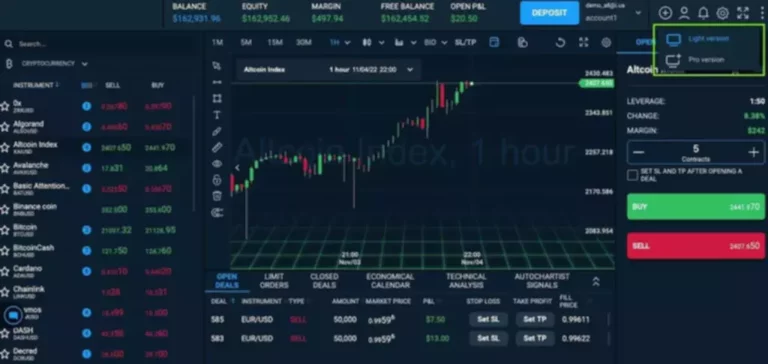Content
The term “crypto asset” itself refers to a wide spectrum of digital products that are privately issued using similar technology (cryptography and often distributed ledgers) and that can be stored and traded using primarily digital wallets and exchanges. Cryptocurrency Overall, the crypto ecosystem will welcome the UK Government’s clear commitment to develop a comprehensive cryptoassets framework. Once the details are fleshed out over the next few years, the UK should have a structured regime that will allow actors to determine how and where to play in the UK’s regulated crypto ecosystem. The United Kingdom’s approach to cryptocurrency regulation has faced criticism on several fronts. One of the main criticisms is that the regulations are inconsistent and unclear, leading to confusion among businesses and consumers.
The Future of UK Crypto Regulations
Although it left the EU in 2020, the UK government incorporated the Fifth and Sixth Anti-Money Laundering Directives(5AMLD & 6AMLD) into its domestic legislation for cryptocurrency regulation. The FPC emphasized that cryptocurrencies do not hold any claim on future income streams or collateral. They possess no intrinsic value beyond their present potential for adoption as a form of future currency and may hold no value. Many popular exchange tokens are very volatile, which makes them less useful as payment and more appealing to some holders as a high-risk speculative investment. “Grant Thornton” refers to the brand under which the Grant Thornton member firms provide assurance, tax and advisory services to their clients and/or refers to one or more member firms, as the context requires. GTIL and its member firms are not agents of, and do not obligate, one https://www.xcritical.com/ another and are not liable for one another’s acts or omissions.
A $6.2m banana, a crypto empire and Trump’s potential conflicts
Currently AML regulations for cryptoassets vary considerably between jurisdictions, with a number of jurisdictions yet to implement international standards set out by the Financial Action Task Force (FATF). Sometimes users will pay more cryptocurrency regulations uk in transaction fees in order to get their transactions processed more quickly. This means that, in some cases, cryptoasset transactions will not be as cost effective or as efficient as transactions done through a government issued currency. Some cryptoassets have a finite total supply (such as Bitcoin); others are launched with infinite total supply.

What is the new UK crypto regulation?
These cryptoasset tokens can then subsequently be taken out of circulation if the cryptoasset is sold. Many e-money institutions also allow customers to purchase certain cryptoassets through their platforms. Individuals can also purchase cryptoassets from online fiat on-ramps using credit cards, debit cards, or through a bank transfer. These services tend to have minimal AML/KYC checks for the purchase of certain amounts of cryptoassets. “We remain steadfast in our commitment to grow the economy and enable technological change and innovation – and this includes cryptoasset technology.

Cryptoassets can also be traded through over-the-counter brokers, who facilitate direct trades between private individuals. This service is particularly vulnerable to abuse by criminals who take advantage of the reduced Anti-Money Laundering/Know Your Customer (AML/KYC) checks. ✅Declaration categorizes users as high net worth or restricted investors based on specific criteria. Controversy surrounds the IRS Tax Reporting Rule for Crypto Transactions Over $10,000 in 2024. Anyone receiving $10,000 or more in cryptocurrency must now submit the transaction details to the IRS.
There has also been an increase in the use of DeFi in recent years, which is the provision of traditional financial services, e.g., lending/saving accounts, but using cryptoassets. The proposals will also strengthen the rules around financial intermediaries and custodians – which have responsibility for facilitating transactions and safely storing customer assets. These steps will help to deliver a robust world-first regime strengthening rules around the lending of cryptoassets, whilst enhancing consumer protection and the operational resilience of firms. As part of this approach, the consultation will seek views on improving market integrity and consumer protection by setting out a proposed crypto market abuse regime. The spectacular, if volatile, growth in the market capitalization of crypto assets and their creep into the regulated financial system have led to increased efforts to regulate them. So too has the expansion of crypto’s many different products and offerings and the evolving innovations that have facilitated issuance and transactions.
This applies to cryptoassets that act like traditional investments falling under the definition of ‘specified investments’. International transfers are another area where blockchain technology may outplay traditional banking institutions. Cryptoassets are borderless and can be transferred among users living in different countries at the same high speed. The international banking system does not exhibit this level of efficiency and varying jurisdictional rules and regulations may slow the process. The key to blockchain’s security is that any changes made to the database are immediately sent to all users to create a secure, established record. With copies of the data in all users’ hands, the overall database remains safe even if some individual users cryptoassets are hacked.
- To address the backlog of registration requests, a “temporary registration regime” was introduced in December 2020.
- The financial crime rules in FSMA are broader than the MLRs, covering areas including anti-bribery and corruption, sanctions and fraud.
- One type of crypto-token is a non-fungible token (NFT), which is a crypto-token that is unique or capable of being differentiated from other crypto-tokens.
- International trading venues that serve UK customers should start preparing for this.
- The FCA has highlighted the potential for speculation to be exploited due to the obscurity of the crypto industry, thereby jeopardizing market integrity.
The Financial Stability Board began monitoring crypto asset markets; released a set of principles to guide the regulatory treatment of global stablecoins; and is now developing guidance for the broader range of crypto assets, including unbacked crypto assets. There are notable differences between MiCAR and the UK’s regulatory plans, such as categorisation of cryptoassets, the scope of regulated activities and disclosure obligations for cryptoasset issuers. And so, regulatory divergence is an additional challenge for this global and highly interconnected market. Last year, the FCA introduced new financial promotion rules around the marketing of cryptoassets in the UK (applicable to all firms regardless of whether they are based overseas or what technology is used to make the promotion). There are strict rules stating that all promotions must be fair, clear and not misleading, with prominent risk warnings.
This is according to the Financial Conduct Authority (FCA), which is setting out a timetable to regulate the volatile asset class as investors are unprotected if something goes wrong. Regulators are racing to draw up rules to manage cryptocurrencies amid concern that their growing popularity could threaten established financial systems. NFTs are assets in the digital world that can be bought and sold, but which have no tangible form of their own.
Additionally, the Task Force explored options for regulating stablecoins, which are currently prohibited under the Financial Conduct Authority (FCA). The UK is expected to follow EU’s footsteps in implementing anti-money laundering (AML) regulations and directives similar to the EU’s proposals on Markets in Crypto-assets and E-Money. The FCA has further emphasized that it will take timely action if crypto businesses fail to comply with the expected sector standards.
They commonly operate through centralised entities and are traded on centralised exchanges. This includes security tokens, such as shares or debt instruments, or units in a collective investment scheme using tokens to represent investors’ interests. However, defining the regulatory perimeter has been challenging and prone to a high degree of interpretation.
The FCA has highlighted the potential for speculation to be exploited due to the obscurity of the crypto industry, thereby jeopardizing market integrity. Cryptoasset users are assigned private keys, which allow access to their cryptoassets. Hackers can infiltrate wallets and steal these assets if they know a user’s private key. If hackers can determine some of your non-cryptoasset related personal information, even if it is your name and address, they may be able to infiltrate your transactions in that space regardless, for example through phishing attacks.
A cryptoasset is a digital representation of value or contractual rights that can be sent, stored, or traded electronically. They are created via the combination of cryptography, distributed ledger technology, or other similar technologies. Issues such as processing capacity and their mining’s vast energy consumption, still need to be resolved.
